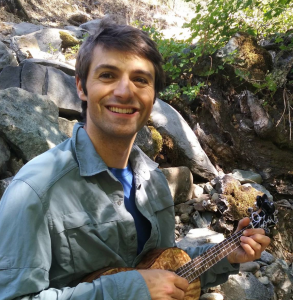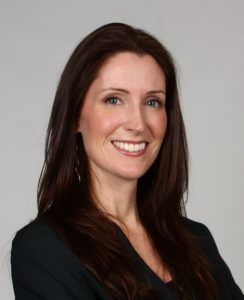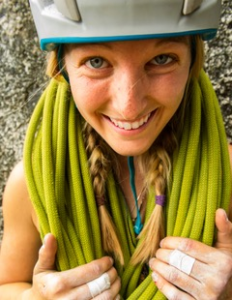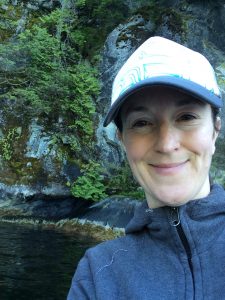IRES Student Symposium
Thursday, April 12th 2018
Time: 1pm to 4:45pm
Location: AERL Theatre (room 120), 2202 Main Mall
Food and Drinks: 4:45pm and onwards in the AERL lobby. Dinner with cash bar.
Organized by the RES Student Society and RES students.
***************************************************************************
Here are the 7 speakers presenting at the symposium with their presentation titles, summary, and biography.
1. If you build it, will they come? — Anticipating future development in Cumulative Effects Assessment
Consideration of “reasonably foreseeable future projects” is a longstanding challenge in cumulative effects assessments. Details about future projects are often scant or non-existent, with this limitation used to justify excluding most future projects from cumulative effects assessments, though not from economic benefit evaluations. In this presentation, I argue that it is possible to better align our accounting of environmental consequences with our expectation of economic gains. To this end, I use historical development patterns to develop a statistical model of probable future development scenarios. These probability estimates can be used in lieu of current practice (of essentially ignoring future projects) to inform cumulative effects assessments, especially of project types known to have a high potential to attract further development. As a case study, I develop a probabilistic model for BC using the past 150 years of historical project development data.
Jackie Lerner (PhD Candidate):

Bio: Jackie Lerner is a PhD Candidate at UBC’s Institute for Resources, Environment, and Sustainability. She has worked in environmental consulting for over twenty years and been involved in the preparation of environmental and social impact assessments for several major Canadian resource development projects.
2. Projecting the impacts of montane meadow restoration through groundwater modeling
Mountain meadows provide important ecosystem services and wildlife habitats across the Sierra Nevada in California. From a hydrologic perspective, meadows can act to increase baseflow, mitigate spring flooding, and sustain niche ecosystems. Despite these benefits, meadow systems have been severely degraded since western settlement through livestock, timber extraction, and infrastructure development. With a changing climate and limited management budgets, hydrologic modeling can offer insights into impacts from management actions. Van Norden meadow is a large meadow near Lake Tahoe in Northern California at the top of the Upper Yuba River. It provides a case study to better understand how restoration actions (dam removal and channel filling), and climatic shifts may affect meadow hydrology.
Teddy Eyster (MSc student):

Bio: Teddy is an MSc student studying under Mark Johnson in the Ecohydro Lab. He is interested in water as a link between human and natural systems and works on a wide range of projects from developing open-source DIY water monitoring technology to modeling mountain meadow restoration. Teddy received his BSE in Civil and Environmental Engineering from Princeton University and has worked as an environmental consultant and researcher engaged in site assessments, contaminant mapping, groundwater monitoring, and fieldwork in ecology and hydrology. In his spare time, he enjoys trail running, playing banjo, woodworking, and throwing the atlatl.
3. Using Network Science to Understand the Knowledge Translation Pathways that Support Evidence Informed Decision Making in Learning Health Systems.
Evidence-informed public policy has demonstrated positive outcomes for populations. Within the health sector, evidence-informed decision-making (EIDM) suggests that knowledge generated from scientific research will support better policy, and knowledge translation (KT) is intended to facilitate this process. This interdisciplinary strategy uses network science concepts from epidemiology, in two applications, to understand the KT pathways as contagion phenomena in environments that use evidence to inform health policy.
At the macro- level, bibliometric analyses are used to understand the global trends in international collaboration with in health policy and systems research (HPSR). At the micro-level, a survey was conducted in a public health agency with an embedded policy support research mandate. The survey captured the informal interpersonal networks among employees and these results were used to demonstrate the complex pathways along which research knowledge flows within the organization.
Seminar video not available.
Krista English (PhD Candidate):

Bio: I am a PhD Candidate with an interest in topics at the intersection of complex systems, health systems and decision-making, and their general relationship with organizational complexity and public health policy design.
I am currently a Senior Research Scientist and Co-investigator on a 5-year CIHR operating grant in IRES. Prior to this, I have worked in population and public health research and management for more than a decade, at the British Columbia Centre for Disease Control, most recently as the Associate Director of the Division of Mathematical Modeling. I concurrently served a 4-year term as Co-Director of the World Health Organization (WHO) Collaborating Centre in Complexity Science for Health Systems.
4. Public Perceptions of Farming Systems and Associated Practices
Designing agricultural systems that balance food production with environmental sustainability will be pivotal in supporting a growing population while living within planetary boundaries. While there are many different aspects of the global food system from which significant change can be made, the consumer role is one dimension that warrants examination, and is the aim of this research. Understanding the relationship between consumer attitudes and actions relating to food is one piece of the greater puzzle of actualizing the shift towards a sustainable food system. Forming a complete understanding of how consumers influence the food system is an important step toward achieving change. This study thus seeks to explore the intuitive logics that people use to judge different food systems, their associated agricultural practices, and other variables that go into the decision-making process with agrifood products.
Seminar Video not available.
Rae Cramer (MA Student):

Bio: Rae is an MA student working under the supervision of Dr. Terre Satterfield and Dr. Jiaying Zhao. Her research is focused on how perceptions of foods and farming systems affects consumer decision making. Rae completed her BA at the University of Illinois at Urbana-Champaign in Environmental Science and Anthropology. After graduating, different avenues of work led her to an increasing interest in sustainable agriculture and food systems.
5. Toward Decolonizing Food Literacy: Co-Creating a Curriculum at Lach Klan School with Gitxaala Nation
Food is and has always been more than a source of physical nourishment for Gitxaala Nation; it is a way of life, a source of pride and integral to community wellness. This research explores how the Gitxaala community garden and the Summer Reading Program at Lach Klan School can be leveraged to provide a platform for learning – ‘food literacy’ – as a pathway toward achieving the broader goals of food security and food sovereignty. By enhancing the engagement of students in Gitxaala with their food system through hands-on learning activities that integrate Indigenous language and knowledge, this research suggests that food literacy activities have the potential to contribute to the goals of food sovereignty in Gitxaala by better equipping students to define, demand and make decisions that shape what their food system looks like now and into the future.
Seminar video not available.
Ada Smith (MA Student):

Bio: Ada grew up on a small farmstead in rural Wisconsin where her family’s vegetable patch was surrounded by endless rows of corn and soybeans, sparking her interest in questions around food security, food sovereignty and food literacy. She completed her BA in Anthropology and Environmental Studies at Wellesley College where her honors thesis focused on food security and environmental justice on the small island of Vieques, Puerto Rico. Her current research as an MA Candidate at the Institute for Resources, Environment and Sustainability at UBC expands upon her academic interests and real-world experiences in seeking to understand what key components or mechanisms are needed to successfully “operationalize” food sovereignty for remote First Nations communities in BC.
6. Understanding Carsharing Patterns for Effective TDM Policymaking: A Study of Municipalities in Metro Vancouver
Carsharing (CS) is a method of individual transportation more sustainable, efficient, and cost-effective than personal automobile ownership. Cities worldwide are exploring policies intended to encourage CS access and utilization with the goal of improving urban planning and human health through transportation sustainability. There is a need to understand and explain CS usage patterns to improve existing municipal policies. This thesis surveys municipal policies for promotion of CS around Metro Vancouver. A broadly held perception has emphasized the importance of CS vehicle visibility as critical to recruitment of members and utilization of vehicles. This belief is tested against visibility metrics and found to neither explain recruitment patterns nor utilization rates. Additional data is gathered to partially explain observed patterns of CS membership recruitment patterns and vehicle utilization and their adoption as part of the menu of municipal policymaking for transportation demand management.
Arielle Swett (MA Student):

Bio: Arielle Swett is a Master’s student in IRES with a background in public policy and international affairs. Within the policy realm, her expertise lies in federal and state energy policies, renewable portfolio standards, utility environmental compliance plans, and conventional electricity supply auctions throughout ISOs in the Northeastern and Midwest United States. At IRES she works with Drs. Hadi Dowlatabadi and Jiaying Zhao as part of a carsharing research team investigating various aspects of carsharing behaviours and policies in the Metro Vancouver region.
7. The role of Indigenous women in transforming fisheries governance
While the agency of individuals has been identified as a key factor in triggering governance transformations in social-ecological systems, little research has explored how the social position of the actors involved influence these transformation processes. My thesis contributes to an expanded understanding of these processes based on work that examines how Indigenous women positioned themselves and responded during a recent fishery crisis and conflict which led to changes in the management of Pacific herring (Clupea pallasii) on the Central Coast of British Columbia. Through qualitative inquiry, I identified actions taken by Heiltsuk women that unified their community, created intergenerational solidarity and movement towards transforming fisheries governance. The findings of this study underscore the importance of Indigenous women as agents of change in their communities and that their leadership roles must be recognized and supported to navigate towards natural resource sustainability and social justice, globally, as well as reconciliation, nationally.
Sarah Harper (PhD Candidate) :

Bio: At the intersection of gender, fisheries, and economics, Sarah’s thesis work investigates the contributions by women to fisheries economies around the world. Her research is interdisciplinary and involves using both quantitative and qualitative approaches to identify women in the fisheries sector, their role and participation in fishing and related activities, including governance, at the local, national, and global level. Her project aims to raise the profile of women in fisheries by providing empirical evidence of the substantial contributions women make to fisheries economies in terms of labour and catch with implications for food and livelihood security and sustainability. A secondary goal of this research is to provide information necessary for developing fisheries policies that are more equitable and gender-sensitive.
The Student Symposium video: IRES Student Symposium_4/12/2018